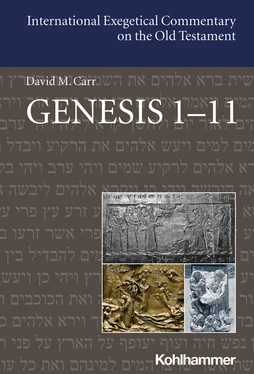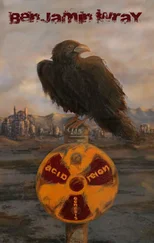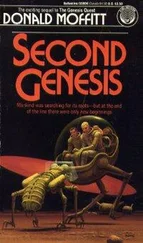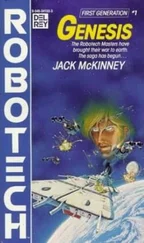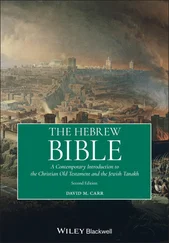11God said, “Let the earth sprout forth sprouting plants a—plants that yield seeds and bfruit trees making fruit each according to its kind cwith internal seeds—on the earth.” And it was so. 12The earth began to bring out sprouting plants, plants that yield seeds each according to its kind and trees making fruit with internal seeds each according to its kind. And God saw that it was good. 13It was evening, and it was morning. A third day.
14God said, “Let there be lights in the heavenly plate to distinguish between the day and the night, and they shall serve for signs, for festivals, for days and for years. a 15They shall be lights in the heavenly plate to illuminate the earth.” And it was so. 16God made the two great lights, the great light for rule over the day, and the small light for rule over the night, and also the stars. 17And God set them in the heavenly plate to illuminate the earth, 18to rule over the day and night and to distinguish between the light and the darkness. And God saw that it was good. 19It was evening, and it was morning. A fourth day.
20God said, “Let the waters continually bring forth a swarm of living beings, and may birds fly about above the earth under the heavenly plate.” a 21God created the great sea monsters, and all of the creeping living beings which swarm the waters according to their kinds, and each winged bird according to its kind. And God saw that it was good, 22and God blessed them, “May you be fruitful and multiply and fill athe waters in the seas. And may the birds multiply on the earth.” 23It was evening, and it was morning. A fifth day.
24God said, “Let the earth continually bring forth living beings of every kind—domesticated animals, creeping things, and wild animals each according to its kind.” And it was so. 25God made the wild animals of every kind, and the domesticated animals of every kind, and every creeping thing of the earth according to its kind, and God saw that it was good.
26God said, “Let us make humankind aas our image, bsimilar to our likeness, so that cthey may rule the fish of the sea, the birds of the sky, the domesticated animals and all the earth, dand every creeping thing that creeps on the earth.” 27And God created humankind as his image. As the image of God, he created humankind. Male and female he created them. 28God blessed them, and God said to them, “May you be fruitful and multiply, aand fill the earth and subdue it, and may you rule over the fish of the sea, the birds of the sky, and every creeping being that creeps on the ground.” 29And God said, “Look! aI hereby give you every seed-bearing plant which is on the surface of the whole earth and every tree which has in it fruit bbearing seed. For you cit is to be food. 30But for every animal of the earth and every bird of the air and every being that creeps on the earth, that has life in it—the green vegetation is for food.” And it was so. 31God saw all that he had made, and, indeed ait was very good. It was evening, and it was morning. The sixth day. b
2:1And the heavens, the earth, and all their array awere finished. 2When God finished aon the seventh day bhis work which he had done, he refrained con the seventh day from all his work which he had done. 3God blessed the seventh day and set it apart as holy, because on it he refrained from all the work which God had created by doing it. a
Notes on Text and Translation
1 aSee the following excursus on translation of Gen 1:1–3 for more discussion of the translation of Gen 1:1 as prepositional phrase, literally “at the beginning of when God created heaven and earth” that introduces Gen 1:2.
2 aFor more on this translation, see the commentary below.
2 bThis expression has been interpreted in some Christian contexts as the Holy Spirit, but this is anachronistic. For more on its translation, see the synchronic analysis of Gen 1:2 below.
3 aThough it produces a bit more awkward text, I have endeavored across the translation of Gen 1:1–2:3 to translate the numerous mentions of “God,” a feature characteristic of the text, not of Hebrew. 1
5 aThough this commentary avoids gender-exclusive language for humans and God, the (male) pronouns are left here and in some other loci in the chapter (e.g., 1:10, 27, 31; 2;2–3) where “God” is not explicitly indicated (see comment 3 adirectly above).
6 aSee Koch, Gottes himmlische Wohnstatt , 196–98, 225 for discussion of translation of רקיע as “plate” rather than the common “firmament” or “dome.” The adjective “vast” is added initially here to convey the scale of the plate being imagined here.
6 bThe verb “to be” plus participle (ויהי מבדיל) appearing here expresses an ongoing function for the plate. It is not just that the waters are separated once by God in a final action, but God sets up a heavenly plate to do this job over time, hence the addition of the adverb “continually” in this translation.
7 aJacob, Genesis , 40 notes that the subject of this sentence must be the heavenly plate, not God, since God would be specified and because all of God’s other creation acts in Gen 1 are acts of speech, creation and making. Moreover, God had earlier specified in 1:6 that the plate should continually separate (using an expression with a participle ויהי מבדיל rather than ויבדל) waters from waters.
7 bThe Old Greek has the correspondence formula, “and it was so” at the end of 1:6, rather than at the end of 1:7 as it is translated here. For discussion of the issues surrounding the LXX edition of Gen 1 on this and similar points, see the commentary below.
8 aThe Old Greek also has “and God saw that it was good,” seemingly harmonizing day two with similar affirmations of goodness in the other days—1:10, 12, 18, 21, 25 and similar ones in 1:4, 31. For discussion of this and similar instances of LXX harmonization in Gen 1, see below.
9 aThe niphal here of קוה II also occurs in Jer 3:17 and refers there to peoples converging on Jerusalem. The translation here renders this reflexive form of assembly, thus matching the more active way that earth is involved in creation in day three, fulfilling God’s commands there (1:11–12).
9 bThe Masoretic text along with 4QGen b, Samaritan Pentateuch, Jub 2:5; Pseudo-Philo 15:6 reads מקום here, which better fits the description of it as “one” (אחד). 24QGen hreads מקוה and the Septuagint reads the equivalent of it (συναγωγην) probably harmonizing this verse with מקוה in 1:10.
9 cThe word translated here as “dry ground,” יבשה, is distinct from the word אדמה, “ground” that is used throughout Gen 2–3 (also Gen 1:25) and subsequent parts of the primeval history to refer to arable ground. The term “dry ground” is used to indicate that the ground is potentially watered, fertile land, whereas “dry land”—which is frequently used to translate יבשה (e.g., NRSV)—can have the implication of desert. The productivity of the יבשה becomes clear here already in Gen 1:11–12.
9 dThe phrase “The waters … dry ground appeared” is a plus reflected in the Septuagint, and possibly in a small fragment of 4QGen k. For more discussion of this plus and other issues surrounding the Septuagint, see the commentary below.
11 aAs in Gen 1:20, the divine speech here starts with a joining of verb and noun constructed from the root of the verb, a common combination in Hebrew ( figura etymologica ) that emphasizes the linguistic connection between verb and object, here “sprout” (דשא) and green plants that are sprouted (דֶשֶׁא). Apparently the push to use this figura etymologica is enough to have דֶשֶׁא function here somewhat differently than its usual usage to refer more exclusively to the sort of low-level grassy plant eaten by animals (Jer 14:5; Job 6:5) and/or the very earliest stage (generally) of plant growth, and arising with the rain (Job 38:27) or lost when land is dry (Isa 15:6). 3
Читать дальше
